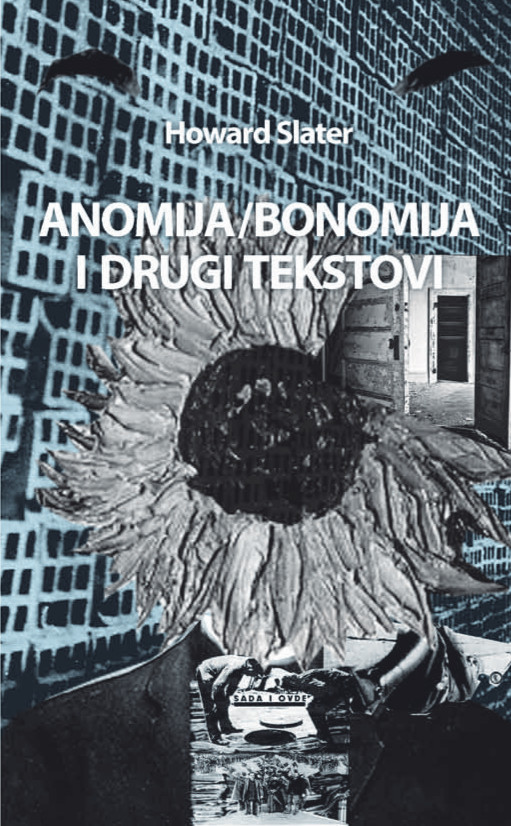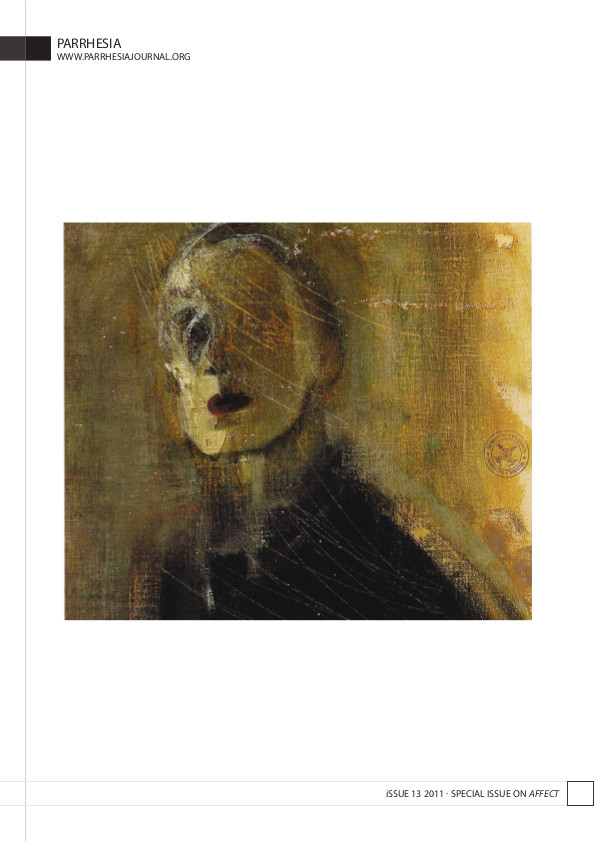Tony D. Sampson: Virality: Contagion Theory in the Age of Networks (2012)
Filed under book | Tags: · affect, assemblage, biology, biopower, capitalism, contagion, memes, memetics, networks, politics, sociology, theory, unconscious, virality, virus

“In this thought-provoking work, Tony D. Sampson presents a contagion theory fit for the age of networks. Unlike memes and microbial contagions, Virality does not restrict itself to biological analogies and medical metaphors. It instead points toward a theory of contagious assemblages, events, and affects. For Sampson, contagion is not necessarily a positive or negative force of encounter; it is how society comes together and relates.
Sampson argues that a biological knowledge of contagion has been universally distributed by way of the rhetoric of fear in the antivirus industry and other popular discourses surrounding network culture. This awareness is also detectable in concerns over too much connectivity, such as problems of global financial crisis and terrorism. Sampson’s “virality” is as established as that of the biological meme and microbe but is not understood through representational thinking expressed in metaphors and analogies. Rather, Sampson interprets contagion theory through the social relationalities first established in Gabriel Tarde’s microsociology and subsequently recognized in Gilles Deleuze’s ontological worldview.
According to Sampson, the reliance on representational thinking to explain the social behavior of networking—including that engaged in by nonhumans such as computers—allows language to overcategorize and limit analysis by imposing identities, oppositions, and resemblances on contagious phenomena. It is the power of these categories that impinges on social and cultural domains. Assemblage theory, on the other hand, is all about relationality and encounter, helping us to understand the viral as a positively sociological event, building from the molecular outward, long before it becomes biological.”
Publisher University of Minnesota Press, 2012
ISBN 0816670056, 9780816670055
235 pages
Review: Jussi Parikka (Theory, Culture & Society)
Book video (University of Amsterdam students)
Author’s research blog
Publisher
PDF, PDF (updated on 2017-9-29)
Comments (2)Howard Slater: Anomie/Bonhomie & Other Writings (2012/2013) [Serbo-Croatian]
Filed under book | Tags: · affect, capitalism, media theory

In this collection of writings, Howard Slater improvises around what Walter Benjamin could have meant by the phrase ‘affective classes’. This ‘messianic shard’ and its possible implications leads Slater to develop a therapeutic micro-politics by way of a mourning for the Workers’ Movement and a grappling with the ‘becomings of capital’.
The essay “Anomie/Bonhomie” is the keystone of this book which also features tributary texts and poems drawn from the past ten years. These supplementary texts approach such themes as exodus, species-being, surrealist precedents, poetic language and the possibilities for collective ‘affective’ practices to combat capitalism’s colonisation of the psyche.
Originally published by Mute, London, 2012
Serbo-Croatian edition: Anomija/Bonomija i drugi tekstovi
Translated by Dušan Đorđević Mileusnić, Đorđe Čolić, kuda.org, GKP (under copyleft license)
Publisher kuda.org, Novi sad, 2013
ISBN 978-86-88567-06-0
164 pages
via Anthony Iles
commentary and English version of the Preface/Afterword and additional material (Mute.org)
publisher
Parrhesia: A Journal of Critical Philosophy, No. 13: Special Issue on Affect (2011)
Filed under journal | Tags: · aesthetics, affect, phenomenology, philosophy

“This special issue of Parrhesia has developed from the 2010 Australasian Society for Continental Philosophy’s Conference at the University of Queensland on the theme of the philosophy of affect. [..]
The issue contributes to the “affective turn” by engaging in studies of affect grounded in non-dualist ontologies and by considering affect in relation to the work of art. The collection also works against the narrowly defined “turn” by providing nuanced readings of philosophers understood by the “turn” only in clichéd terms, as ultra-rationalist or anaffective.” (from the Introduction)
With contributions by Antonio Calcagno, Sara Heinämaa, Paul Redding, Bernard Stiegler, Geoff Boucher, Max Deutscher, Paul Formosa, Stuart Grant, Jane Lymer, Matthew Sharpe, Marie Christine Tams, Magdalena Zolkos, and Robert Sinnerbrink.
Edited by Marguerite La Caze and Henry Martyn Lloyd
Publisher Open Humanities Press
Creative Commons Attribution-Noncommercial-No Derivative Works 3.0 License
ISSN 1834-3287
210 pages
PDF (single PDF)
PDF (PDF articles)

